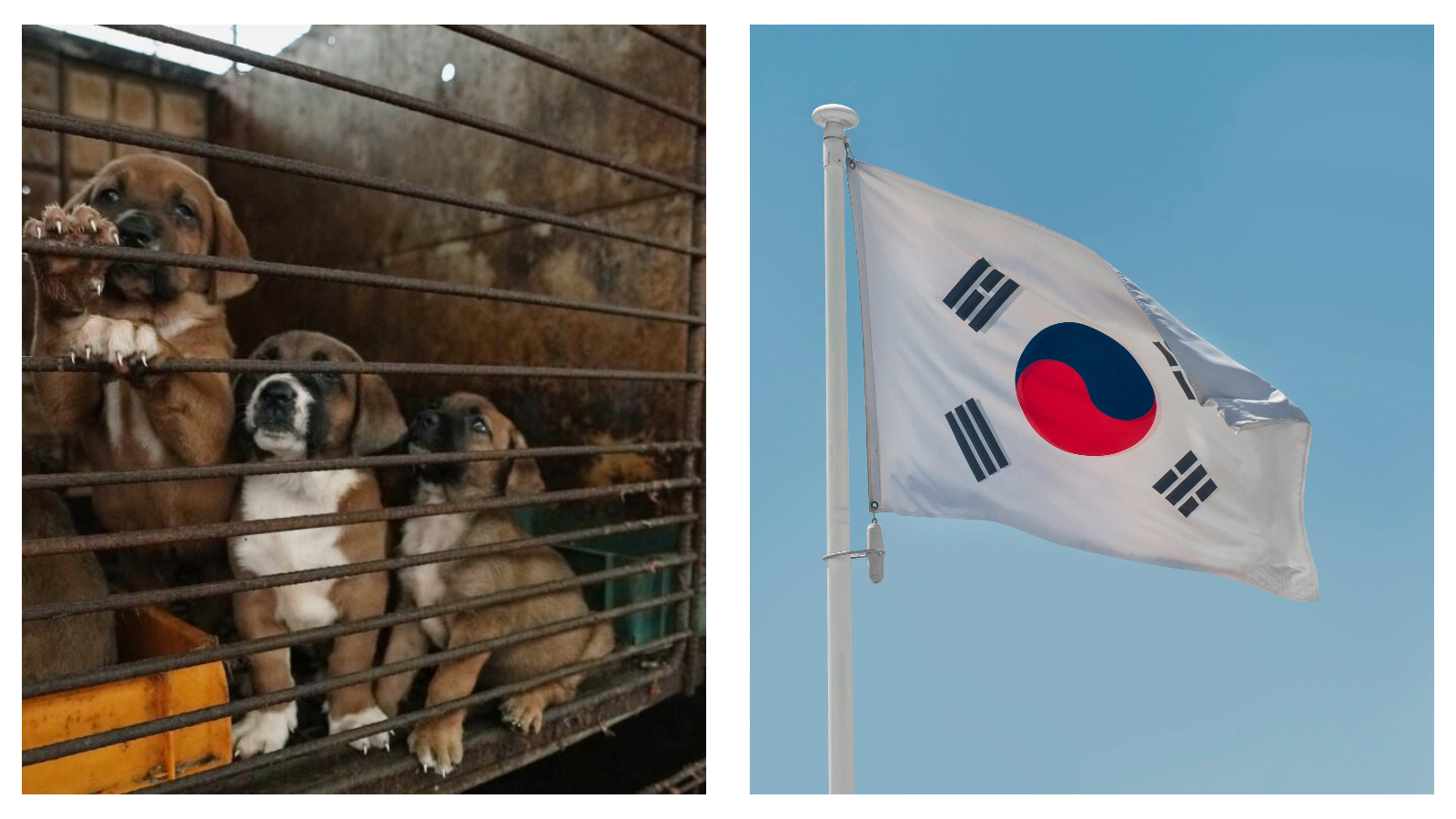By Kamille Q. Cabreza
As South Korea awaits the full effect of a bill banning the production and sale of dog meat in 2027, about 40 percent of dog meat farms in the country have willingly ended their operations for good as of early February.
It is a huge part of the country’s efforts to combat the rampant cases of animal abuse, dogs included, reported over the past years.
This is also the government’s way of acknowledging the cries of animal rights organisations against such a monstrosity that is consuming meat of what the world considers “a man’s best friend.”
South Korea’s advocacy on the importance of providing the right protection and care for animal companions became more evident after observing a stunning 28.2% increase of households with pet owners in 2023.
This was the same year its fertility rate recorded a drastic all-time low of births per woman with 0.72 due to a combination of social, economic and cultural factors, underlining high costs of childrearing as a primary reason.
Passage of bill leads to rare political unity
January 9, 2024, saw a unified opposition-controlled National Assembly for once after both conservative and liberal sides agreed in a 208-0 vote to pass the bill that closes the chapter of permitting the disputed tradition of trading and consuming dog meat in the country.
The bill stipulates that raising and breeding or butchering for humans to purchase and consume, as well as distributing or selling dog meat, will be considered an illegal act once fully enforced in 2027.
Those who raise and butcher dogs in violation of the law risk a possible sentence of three years in prison or a fine of up to KRW30 million ($20 573), while those who distribute dog meat risk a maximum sentence of two years in prison or a fine of up to KRW20 million ($13 715), according to The Korea Times.
Dog meat industry stakeholders, including farmers, retailers and restaurant operators, were required to register their businesses in the first half of 2024.
They also had to provide local authorities with plans detailing how they would reduce their operations and formally shut them down.
As of February 9, 2025, 623 of the 1,537 registered dog farms nationwide willingly ended their businesses since the enactment of the special law in August 2024.
YOU MAY ALSO LIKE: ICC vs President Duterte: What happened and what’s next?

A woman’s eye-opening call to cease trade in dog meat
It was the strong stance of Kim Keon-hee, the current first lady of South Korea, that shifted the government’s perspective on how such a tradition, being executed in legal gray areas of the country for 46 years, heavily deprived dogs of a safe environment and the right to live.
Acclaimed primatologist and environmental activist Jane Goodall had a personal talk with Kim in July 2023, where the first lady discussed her initiatives to ban the consumption of dog meat.
Various media interviews and meetings with animal activists also heard her eagerness toward this campaign.
Kim is a proud advocate for animal welfare who owns six dogs and five cats.
She is considered by many as a suitable role model for this movement given the surge in pet-dog growth rate in the country the same year the special law passed the parliament.
The first lady’s voice has helped relevant civic groups be heard and has resulted in the proposal of six bills ceasing dog meat trade from rival parties to the Assembly.
First step to breaking a dark tradition
Despite vehement opposition from dog meat farmers and traders, who maintained that the tabled legislation violates people’s rights to freely choose their professional paths and food they wish to consume, the conservative and liberal parties still decided to enact the ban, citing the issue as a “primary political agenda.”
“This ban marks a significant turning point in Korea’s attitude towards animal protection. I hope it will not only eradicate the distressing practice of consuming dogs from our society’s consciousness but also raise awareness about the lives of other factory-farmed animals that endure misery solely for human consumption,” Lee Sang-kyung, campaign manager of Humane Society International Korea, stated at the time of the passage.
Aside from this significant movement to ban dog meat, South Korea has rolled out stricter punishments toward people found guilty of animal abuse and neglect under the Animal Protection Act.
Happy pet, happy life
The expansion of businesses showing convenient services to pet owners like pet cafes, hotels, beauty salons and even pet taxis has given the country’s pet industry a swift and exemplary growth in recent years, reportedly exceeding KRW6 trillion (approximately $4 billion).
For instance, a collaboration was formed between the Seoul Metropolitan Government and Yeoncheon County in Gyeonggi Province in January 2024 to establish the largest theme park for pet animals near the Imjin River by 2027. This is to satisfy the rising demand from pet owners, according to a report from The Korea Times.
Prominent coffee chain Starbucks reached a milestone the same year after launching its first pet-friendly, two-story store in Guri City, Gyeonggi Province.
Pet owners may purchase coffee, pastries, or other beverages made on the first floor and bring their animal companions to enjoy the 166-square-meter space pet zone designated for them on the second floor, as cited by South China Morning Post.
Some South Korean firms are even incorporating artificial intelligence and other technologies into pet care, including “smart leashes” for tracking pet health and “smart toilets” for early disease diagnosis.
Pet owners now have better access to well-equipped veterinary clinics offering emergency care, check-ups and vaccinations.
These are only a few of the many initiatives and measures the East Asian country has worked on to show love and respect for pets in society, despite issues like pet abandonment and increased enforcement of animal protection legislation.
